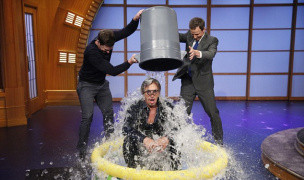 17 Terms
17 TermsHome > Terms > English (EN) > medicine/medical schools
medicine/medical schools
Medicine is a profession that continues to attract entrants of exceptional talent with offers of status, meaningful service and comfortable compensation. Competition by college undergraduates for acceptance into medical school remains formidable. Entry into the medical profession requires completion of a baccalaureate degree followed by four years of medical school in order to qualify for a position in a postgraduate training program or “residency.” Postgraduate training in a hospital setting has become an essential part of the qualifications for medical practice and can last from three to seven additional years.
Medical schools are responsible for not only imparting a knowledge base to students, but also inculcating a professional identity complete with professional norms and values.
There is a natural asymmetry in power stemming from the asymmetry in knowledge between physician and patient that mirrors the asymmetry between teacher and student.
Professional norms play a big role in limiting abuses of power. Because patients have limited ability to monitor whether the medical recommendations they receive are in their best interest, they entrust their very lives to physicians. These concerns are particularly acute in the US healthcare system, where physician compensation is related to the volume and nature of medical services. Fees for service physicians are rewarded for additional volume, whereas many managedcare organizations create financial incentives to limit the volume of medical services.
Under the stresses of a distorting payment system, the success of the doctor-patient relationship depends on the maintenance of professional norms to protect the interests of patients. These norms are maintained by: (1) selecting applicants for medical school who can signal the presence of altruistic concern; (2) early co-option of students as junior colleagues in the profession; (3) tying professional prestige to personal responsibility for patient outcomes; and (4) informal and formal censure for physicians whose treatment decisions show signs of pecuniary motivation.
All professions, medicine included, have suffered some erosion in trust and confidence. Always a nation of do-it-yourselfers, the self-help movement has left America less awed by doctors and more inclined to try to address health problems on their own. In working out their own solutions to health problems, Americans are increasingly likely to consult the Internet, reference books and alternative health practitioners for constructive input.
In addressing its shortcomings, the medical profession is handicapped by long delays between the time educational reforms are started and the time the students who benefit from these reforms enter practice. The long pipeline of medical training is part of the inherent conservatism of medical practice. The latest adaptation to wend its way through medical schools has been a move in practice style away from authoritarian paternalism towards cooperative teamwork in the doctor—patient relationship. Trainees who have learned to listen for constructive input from patients and to share medical advice as suggestions along with the reasoning behind them have been in the making for over a generation. However, only recently have the numbers of these new physicians begun to reach a critical mass in communities throughout America.
The next generation of physicians is being trained in an environment that is thoroughly infiltrated by economic concerns. Insurancecompany policies and constraints are just as likely to be discussed in daily rounds as the latest vital signs and urine output. Hospitals and insurance companies both deploy cadres of “case managers” to question the financial impact of each medical decision. Although older generations of physicians see the presence of economics at the bedside as intrusive and unnatural, how a generation that has grown up in this system will adapt to the continued presence of an activist payment system is an open question.
The stress of medical training stems from a variety of sources. Perhaps foremost is the need for students to adapt to their continual exposure to the harsh realities of death and human suffering. The professional norm of “detached concern” for the suffering of individual patients does not come naturally to idealistic students selected on the basis of a high degree of empathy. Finding a way to be effectively present for the suffering of patients while maintaining the ability to objectively assess clinical situations is a difficult task to be negotiated during the process of professionalization. Errors of cynicism, inappropriate humor and depersonalization are common in this process. In the end there is a great deal of variation in how successful each physician becomes at merging detachment with concern. Overall, medicine tends to focus on physical processes rather than their meaning for whole persons. American society generally gives little space to suffering, preferring to deny its presence or attack its validity. Physicians as products of society mirror this attitude and often address suffering as an objective problem to be solved rather than a fact of life requiring adaptation.
Additional stresses for medical trainees come from long hours both in medical school and postgraduate training. Coupled with long hours is hierarchy. A chain of responsibility extends from the attending physician supervising residents who supervise interns who supervise medical students. Medical problems occur around the clock and the system must be able to respond at all hours. It has been challenging to find ways to couple the dual goals of 24-hour availability and continuity so that the same physicians and students maintain responsibility for a medical problem until it is resolved. To lower the demands on trainee hours, continuity of individual physicians has been replaced by continuity of physician teams in some medical schools. This permits the introduction of shift work into medical training and a concern that the norm of personal responsibility may be replaced by a watch-the-clock mentality.
- Part of Speech: noun
- Synonym(s):
- Blossary:
- Industry/Domain: Culture
- Category: American culture
- Company: Routledge
- Product:
- Acronym-Abbreviation:
Other Languages:
Member comments
Terms in the News
Billy Morgan
Sports; Snowboarding
The British snowboarder Billy Morgan has landed the sport’s first ever 1800 quadruple cork. The rider, who represented Great Britain in the 2014 Winter Olympics in Sochi, was in Livigno, Italy, when he achieved the man-oeuvre. It involves flipping four times, while body also spins with five complete rotations on a sideways or downward-facing axis. The trick ...
Marzieh Afkham
Broadcasting & receiving; News
Marzieh Afkham, who is the country’s first foreign ministry spokeswoman, will head a mission in east Asia, the state news agency reported. It is not clear to which country she will be posted as her appointment has yet to be announced officially. Afkham will only be the second female ambassador Iran has had. Under the last shah’s rule, Mehrangiz Dolatshahi, a ...
Weekly Packet
Language; Online services; Slang; Internet
Weekly Packet or "Paquete Semanal" as it is known in Cuba is a term used by Cubans to describe the information that is gathered from the internet outside of Cuba and saved onto hard drives to be transported into Cuba itself. Weekly Packets are then sold to Cuban's without internet access, allowing them to obtain information just days - and sometimes hours - after it ...
Asian Infrastructure Investment Bank (AIIB)
Banking; Investment banking
The Asian Infrastructure Investment Bank (AIIB) is an international financial institution established to address the need in Asia for infrastructure development. According to the Asian Development Bank, Asia needs $800 billion each year for roads, ports, power plants or other infrastructure projects before 2020. Originally proposed by China in 2013, a signing ...
Spartan
Online services; Internet
Spartan is the codename given to the new Microsoft Windows 10 browser that will replace Microsoft Windows Internet Explorer. The new browser will be built from the ground up and disregard any code from the IE platform. It has a new rendering engine that is built to be compatible with how the web is written today. The name Spartan is named after the ...
Featured Terms
opal
Opal is a hydrated amorphous form of silica; its water content may range from 3% to 21% by weight, but is usually between 6% and 10%. Because of its ...
Contributor
Featured blossaries
dnatalia
0
Terms
60
Blossaries
2
Followers
The Ice Bucket Challenge
 17 Terms
17 Terms
Tatevik888
0
Terms
5
Blossaries
0
Followers
Idioms from English Literature
 11 Terms
11 TermsBrowers Terms By Category
- General seafood(50)
- Shellfish(1)
Seafood(51) Terms
- Printers(127)
- Fax machines(71)
- Copiers(48)
- Office supplies(22)
- Scanners(9)
- Projectors(3)
Office equipment(281) Terms
- General packaging(1147)
- Bag in box(76)
Packaging(1223) Terms
- Aeronautics(5992)
- Air traffic control(1257)
- Airport(1242)
- Aircraft(949)
- Aircraft maintenance(888)
- Powerplant(616)
Aviation(12294) Terms
- Authors(2488)
- Sportspeople(853)
- Politicians(816)
- Comedians(274)
- Personalities(267)
- Popes(204)


